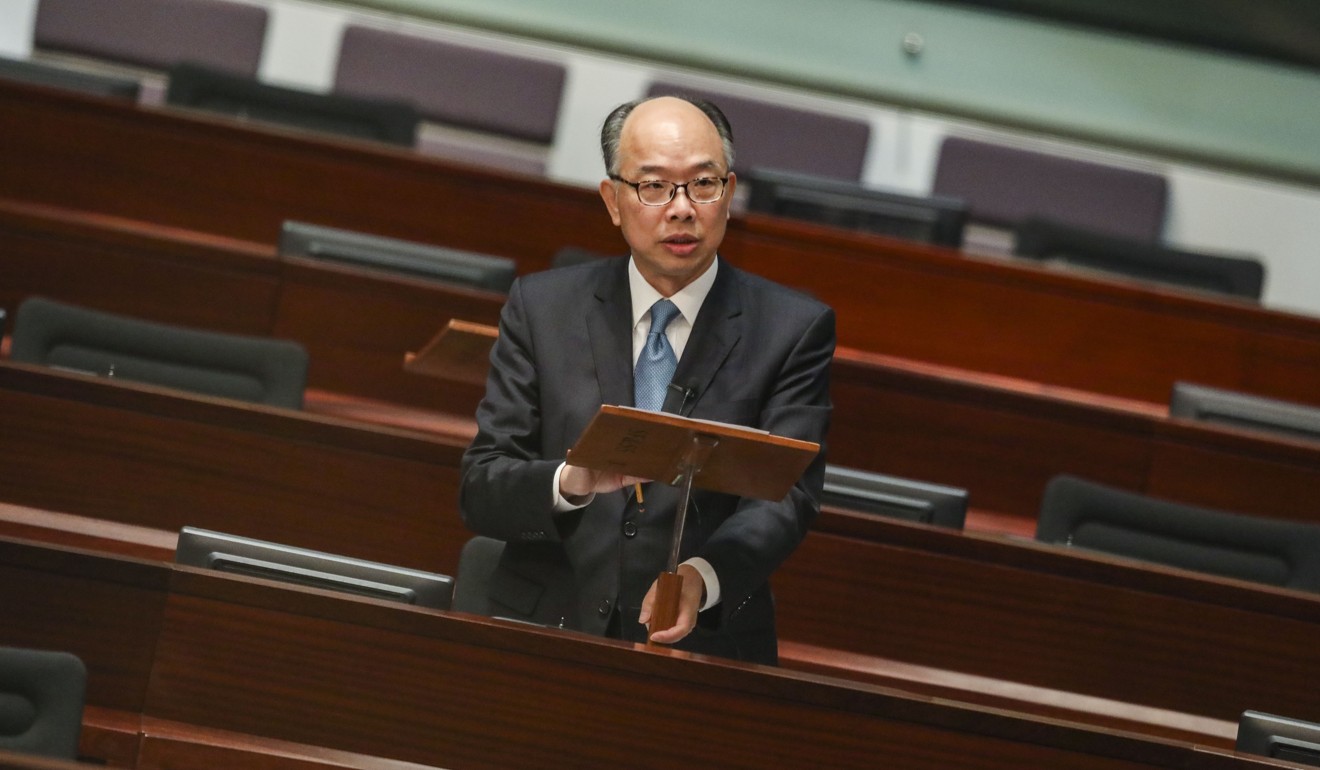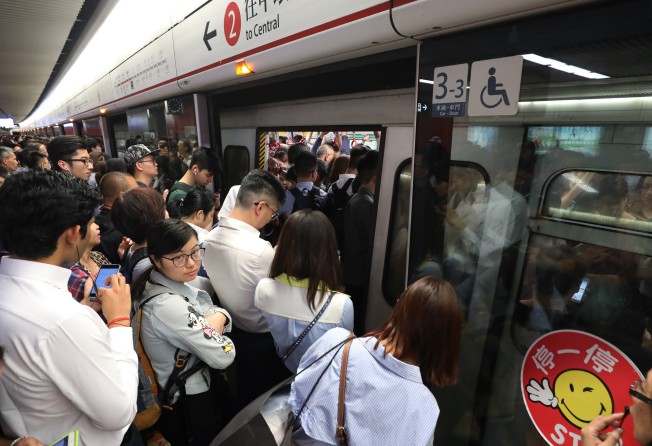
Lawmakers call for Hong Kong rail operator MTR Corp to be given heavy fine for worst breakdown in city’s history
- Transport minister Frank Chan will take ‘serious look’ at system for levelling fines against firm
- While one lawmaker wants MTR bosses to be hit in the pocket as well

Transport minister Frank Chan Fan has vowed to take a “serious look” at what punishment Hong Kong’s rail operator could face for the worst service failure in its history.
A disruption on four lines during the height of morning rush hour nearly brought the city to a standstill last week, and in the aftermath lawmakers called for MTR Corporation to suffer stiffer penalties than it had been subjected to for past breakdowns.
Acknowledging the public’s anger at the incident, Chan told lawmakers on Wednesday at the Legislative Council’s regular weekly meeting the government would review the system for imposing fines.

“We understand the dissatisfaction of citizens and lawmakers, over the chaos,” Chan said.
“The last review on the penalty mechanism was done in 2017, but any mechanism warrants a full and timely review from time to time – whether it is still effective, or needs to be strengthened. I am open to suggestions.”
Lawmakers from both pro-democracy and pro-establishment camps, including those who were stranded at railway stations during the chaos, have called for tougher sanctions, believing the existing mechanism is not strict enough.
Under a 2013 agreement, the rail operator can be punished for the longest delay commuters faced on a particular journey, rather than the entire duration of service disruption.
In August last year, a signal glitch caused service on the Kwun Tong line to be disrupted for 10 hours. While some lawmakers called for MTR Corp to face a HK$20 million fine, the rail operator was only fined HK$2 million, for the 83 minute delay to a journey.
Civic Party lawmaker Tanya Chan Suk-chong wants to raise the maximum penalty to 10 per cent of the total annual ticketing sales of the affected lines, following in the footsteps of Singapore.
Priscilla Leung Mei-fun of Business and Professionals Alliance suggested any fine should be increased if delays take place during rush hour, and called for company bosses to be held personally responsible.
“Directors of the MTR Corp should be punished for the delay, and collectively held accountable too,” she said.
Frank Chan was more cautious when asked about financially penalising board members.
“Any penalty needs to be justified and proportional, and it could not bring any pressure on MTR Corp personnel, or affect safety in operation.”
MTR Corp has set up a panel to study the unprecedented disorder to Island, Kwun Tong, Tsuen Wan and Tseung Kwan O lines, which was caused by a system failure on the Tsuen Wan line.
The incident has also raised doubts on the contingency plans made by MTR Corp and other public transport firms, as commuters waited for hours for buses and taxis.
A bad situation was made worse by MTR not deploying 10 shuttle buses under its contingency action plan, although bus operators had already sent an extra 75 buses during the breakdown, a 40 per cent increase on a normal day.
Describing the chaos as a special case, Chan said if only one line broke down, it would be unrealistic for buses and taxis to accommodate the extra commuters.
“Each train can carry 2,000 people, and a bus carries less than 200, so traffic on the roads would definitely be congested,” he said. “We could only try to minimise the impact caused.”
Pressed by Civic Party lawmaker Jeremy Tam Man-ho on why the Emergency Transport Co-ordination Centre, operated by the Transport Department, maintained only a level 2 alert that day, instead of issuing the maximum level 3 alert, Chan said there was little difference between the levels.
“The only difference is all representatives from public transport firms would come to the Emergency Transport Co-ordination Centre to help coordinate [for level 3], but our colleagues are already relaying messages,” he said. “So, instead of asking them to come, it is better to send staff to the scene instead.”